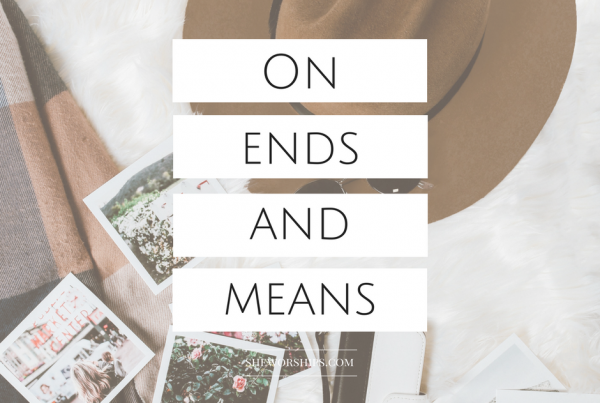Several days ago I was feeling a little depressed. The prospect of a lonely Valentine’s Day was looming, I was overwhelmed with work, I was tired, and I was stressed. It was not a good day.
So what did I do to make myself feel better? How did I nurse my wounds after a difficult week? I went to my favorite place of refuge, my one asylum from the burdens and distractions of the world. That’s right, I went to Target.
 You see, I have somewhat of an unhealthy love affair with the Target store–I could probably spend hours and hours perusing the aisles of clothes, home decor, and seasonal decorations. And given the nature of my relationship with Target, I knew it would be there to comfort me in my time of need.
You see, I have somewhat of an unhealthy love affair with the Target store–I could probably spend hours and hours perusing the aisles of clothes, home decor, and seasonal decorations. And given the nature of my relationship with Target, I knew it would be there to comfort me in my time of need.
So I drove across the street, walked directly into the women’s clothing section, and started trying on outfits until I found a cute little green shirt and some matching earrings that I just had to have.
Then I felt better, and I went home.
I must admit that I feel a little sheepish confessing that I love Target THAT much, but it turns out I’m not the only person like this. Shortly after my therapeutic trip to Target, I read an article about a new study that researched this exact behavior. The findings were as follows: “People’s spending judgment goes out the window when they’re down, especially if they’re a bit self-absorbed.”
Self-absorbed?? Ouch! But in all honesty, the study is actually quite fascinating. Here are a few more excerpts from the article:
The researchers concluded sadness can trigger a chain of emotions leading to extravagant tendencies. Sadness leads people to become more focused on themselves, causing the person to feel that they and their possessions are worth little. That feeling increases willingness to pay more — presumably to feel better about themselves.
“It’s not necessarily that you go to the mall and go on a shopping spree,” said Charlesworth, author of a book on stress management. “It’s often more subtle — you spend a bit more on something than you normally would. But if you magnify that over the course of a year, or a lifetime, those little things add up.”
“But on the back end, I’ve seen buyer’s remorse. This kicks in after they realize that new pair of shoes, or iPod, or whatever, didn’t make them feel better, and then there’s that sense of, ‘Oh my God, why did I spend money on this?”‘
(For the whole article, click here)
What was most interesting about this study is that the behavior was not altogether conscious–it’s not that people went into stores deliberately seeking to make themselves feel better. It was rather a subconscious mechanism. It was written into their lifestyle such that they didn’t even realize they were doing it.
In this sense, materialism has become like an accepted drug for Americans consumers. We depend on it to give us just the high that we need, just the boost we desire to get us through a difficult week. And you can even notice the drug-like behavior–it gets us high, but leaves us low when we realize it didn’t work. Yet we continue to do it anyway…and we never even realize it.
Given that this study represents a worldly way of dealing with sadness and stress, and given that it described me to a T, I read this study as a pretty scathing indictment of my own relationship with God. Shopping therapy is the way that the WORLD deals with sadness, but it should not describe the way that Christians deal with sadness. Of all the places that I should be running when I feel down, Target is the last. Never was there a cheaper idol.
Yet this is something that women struggle with. Even if we don’t drop $500 on designer shoes, we will still be tempted to over-shoot our budgets on tiny splurges. And while that doesn’t mean it’s wrong to buy something nice for yourself from time to time, this study should make us pause and ask, “Why am I buying this, and what does it say about my relationship with God?”
You see, the reason that shopping therapy ultimately fails is that it feeds the problem, rather than quenching it. The problem is self-absorption, and shopping only encourages us to focus on ourselves. But Christianity takes a different approach. Rather than focus on yourself all the time (which CAN get discouraging–you are, after all, a fallen sinner), focus on the God who loves you, died for you, and redeemed your sin. Focus on serving Him, living for Him, loving Him. Run to Him when you are down, and seek Him as your refuge.
Until you discipline yourself to do this, you will forever be returning to your proverbial “Target,” looking for that quick fix. But as long as you deal with your pain the way the rest of the world does, then you will never look any different from the world, and you will never feel better. That is a habit I think I’d like to change.
Sorry, Target, but the love affair has got to end. I’m breaking up with you for a better lover.






hey sharon, i totally hear you on this. For me, it’s mostly food. If I’ve had a bad day, I’m more likely to go out to eat or want to eat something that will make me feel better. That doesn’t mean that it’s loaded with calories… but that it’s expensive and I feel pampered somehow. eesh…
also, great shoutout on ed setzer’s blog. you made some pretty stinkin awesome points. 🙂
sharon, i have been reading your blog for a while now and have been pointing all the ladies i know to it. I have just begun to plant a church in greensboro, i did some training at the summit, and we are trying to glorify Christ from greensboro. Some time while you are in the boro- my wife and i would love to have you over to get to know you more.